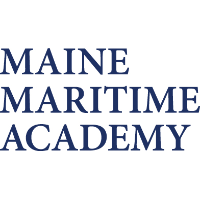What do they do?
Control, operate, or maintain machinery to generate electric power. Includes auxiliary equipment operators.
Also known as:
Auxiliary Operator, Control Operator, Control Room Operator, Multicraft Operator (MCO), Operations and Maintenance Technician (O & M Technician), Plant Control Operator, Power Plant Operator, Station Operator, Unit Operator
-
-14.1%
Change
Ranks #47 in job growth rate60Job Openings
Ranks #18 in net job growth
-
Maine Maritime Academy
Castine, ME
Looking for colleges that offer a specific major? Use the College Match Tool to find your best-matched schools and discover your estimated Net Price!
- Doctorate or Professional Degree (<1%)
- Master's degree (3%)
- Bachelor's degree (18%)
- Associate's degree (20%)
- Some college, no degree (32%)
- High school diploma equivalent (24%)
- Less than high school diploma (2%)
People in this career often have these skills:
- Operations Monitoring - Watching gauges, dials, or other indicators to make sure a machine is working properly.
- Critical Thinking - Using logic and reasoning to identify the strengths and weaknesses of alternative solutions, conclusions, or approaches to problems.
- Operation and Control - Controlling operations of equipment or systems.
- Speaking - Talking to others to convey information effectively.
- Active Listening - Giving full attention to what other people are saying, taking time to understand the points being made, asking questions as appropriate, and not interrupting at inappropriate times.
- Quality Control Analysis - Conducting tests and inspections of products, services, or processes to evaluate quality or performance.
People in this career often have talent in:
- Oral Comprehension - The ability to listen to and understand information and ideas presented through spoken words and sentences.
- Oral Expression - The ability to communicate information and ideas in speaking so others will understand.
- Problem Sensitivity - The ability to tell when something is wrong or is likely to go wrong. It does not involve solving the problem, only recognizing that there is a problem.
- Deductive Reasoning - The ability to apply general rules to specific problems to produce answers that make sense.
- Near Vision - The ability to see details at close range (within a few feet of the observer).
- Inductive Reasoning - The ability to combine pieces of information to form general rules or conclusions (includes finding a relationship among seemingly unrelated events).
- Information Ordering - The ability to arrange things or actions in a certain order or pattern according to a specific rule or set of rules (e.g., patterns of numbers, letters, words, pictures, mathematical operations).
People in this career often do these activities:
- Operate energy distribution equipment.
- Watch operating equipment to detect malfunctions.
- Operate energy production equipment.
- Operate pumping systems or equipment.
- Exchange information with colleagues.
- Adjust equipment controls to regulate flow of water, cleaning solutions, or other liquids.
- Adjust equipment to ensure optimal performance.
- Record operational or production data.
- Clean production equipment.
- Maintain production or processing equipment.
- Lubricate production equipment.
- Maintain sustainable energy production equipment.
- Test electrical equipment or systems to ensure proper functioning.
- Monitor lubrication of equipment or workpieces.
- Monitor equipment operation to ensure proper functioning.
- Repair production equipment or tools.
- Notify others of equipment repair or maintenance needs.
- Collect samples of materials or products for testing.
This page includes data from:

 Occupation statistics: USDOL U.S. Bureau of Labor Statistics Occupational Employment Statistics
Occupation statistics: USDOL U.S. Bureau of Labor Statistics Occupational Employment Statistics





